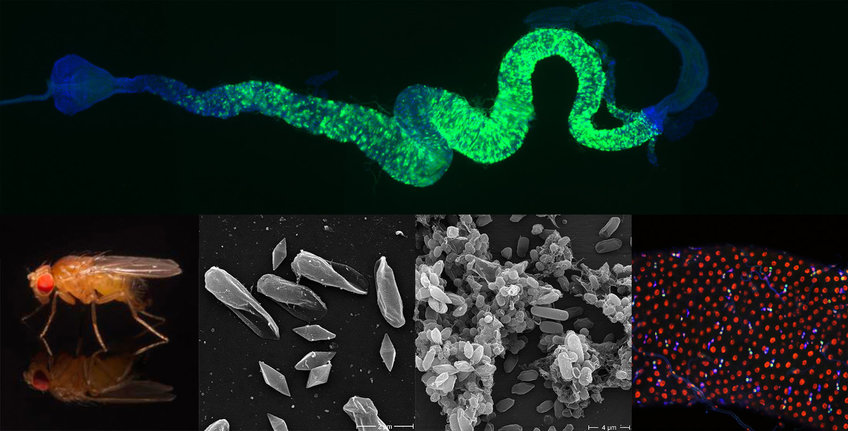
Genetics of Host-Microbe Interactions
Our research has three major axes:

Drosophila immunity
Insects are equipped with efficient mechanisms for detecting and neutralizing microbial infection. Using the power of Drosophila genetics and genomics we aim to decipher conserved mechanisms of innate immune responses. We are particularly interested in the cellular and molecular mechanisms of the host immune responses to polymicrobial infections. In such infections, an immune response to one pathogen can alter the response to co-infecting pathogens leading to unpredictable infection outcomes. Investigation of the host responses to co-infections is thus crucial for designing appropriate treatment strategies for polymicrobial diseases.
Pathogen responses to host immunity
Pathogens rely on a plethora of mechanisms to subvert the host defenses. In the case of polymicrobial infection, multiple infecting microbes interact with each other and with the host to induce virulence traits, alter the infected niche, or modulate the host immune response, all of which determines the outcome of polymicrobial infection. Very little is known about the molecular processes that underpin interactions between microbes and the host during such infections. Using genomics, reverse genetics, and imaging techniques, we investigate the molecular mechanisms of pathogen-pathogen and host-pathogen interactions during polymicrobial infections.
Effect of microbiota on host physiology
The complexity of mammalian microbiota in the major obstacle limiting the studies of microbial factors affecting the host physiology. We utilize Drosophila with its simple microbiota and short lifespan as an accessible model to discover microbial factors modulating host aging and immunity. Specifically, we aim at identifying individual microbial factors/metabolites modulating host aging and immunity and to reveal their molecular mechanism of action. From the host side, we seek to find the host factors that regulate intestinal bacterial communities and maintain intestinal homeostasis. Ultimately, we want to understand how perturbations of beneficial microbial communities (dysbiosis) impact the health of the host.

